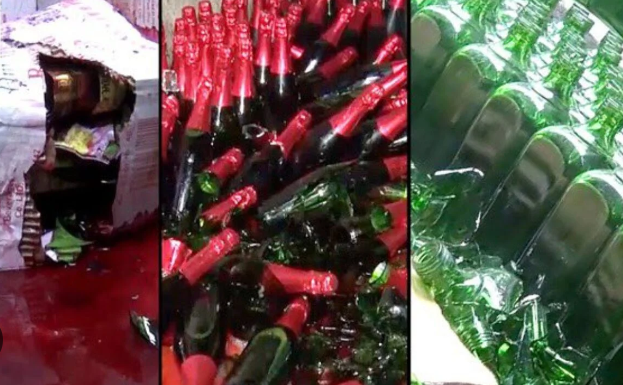Concerns have been raised in Nigeria over the increasing prevalence of counterfeit products flooding the markets, posing significant risks to unsuspecting consumers. As the festive season approaches, counterfeiters are exploiting the demand, flooding trusted shopping malls and local stores with cloned and fake products for excessive profits.
One recent social media incident highlighted a cautionary message to Christmas shoppers about a specific brand of stir fry sauce with over 11 variations, allegedly made in China and subject to various substandard imitations. Similar cases involve the Four Cousins wine brand, imitated as ‘Four Brothers’ and ‘Nice Brothers,’ and the popular Eva fruit wine counterfeited into three different variants.
Beyond beverages, even essential commodities like rice, palm oil, and vegetable oil have reportedly been compromised, with consumers encountering substandard versions that raise health concerns. Instances of counterfeit toiletries, pharmaceuticals, and over-the-counter medications with reduced potency have also been reported, indicating the widespread nature of the problem.
Consumers have expressed grievances, revealing instances where products like palm oil had an altered appearance, smell, and taste, leading to concerns about the safety of the food prepared with them. The challenges extend to personal care items, as individuals report encountering fake soaps and toiletries with altered packaging.
The National Agency for Food and Drug Administration and Control (NAFDAC) has taken steps to address the issue, intercepting and destroying counterfeit versions of various products, including alcoholic beverages and non-alcoholic drinks. However, the scale of the problem remains a significant challenge.
Consumers are advised to scrutinize products thoroughly, checking for authenticity markers such as NAFDAC numbers, manufacturing and expiry dates, and any unusual pricing or packaging discrepancies. The responsibility to combat counterfeit products extends to regulatory bodies, law enforcement agencies, and the need for strengthened legal measures to curb this pervasive issue.
Despite efforts to address the problem, concerns persist about the potential dangers of consuming substandard and counterfeit products, which may lead to health complications and loss of confidence in the safety of goods available in the market. The need for comprehensive strategies, stricter law enforcement, and public awareness campaigns is emphasized to protect consumers from the risks associated with counterfeit goods.


